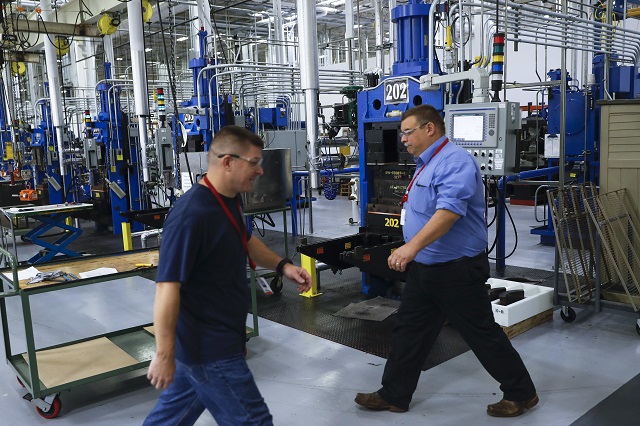
Credit: (AP Photo/John Minchillo)
Blue-collar jobs are changing. In the mid 20th century, many of these jobs were protected by unions and offered financial security. Today, both companies and employees are struggling to adjust to a turbulent economy; wages for lots of workers have barely kept pace with inflation. Harvard Business School economist Dennis Campbell thinks he’s found a solution. We talk to Campbell about a new economic model that could benefit everyone - and that focuses on sharing.
Three Takeaways:
- Campbell says sharing a company’s success empowers people to contribute more energy and ideas. Because different employees have different responsibilities, it makes sense to have everyone thinking about how to streamline and improve business processes. Then, Campbell says, the resulting increase in productivity adds value to the company overall.
- Sharing also means the sharing of profits and stock with blue-collar workers. Which, in the end, shouldn’t cost anything, according to Campbell. In fact, studies have shown that distributing profit helps companies make more money, because increased productivity leads to increased profitability. At the end of the day, corporate executives and investors still get a share that’s equal, or sometimes larger, than the one they used to get before.
- But profit incentives aren’t enough to keep employees motivated long-term. Campbell notes that companies need to be more transparent. Once employees understand how their performance influences the bottom line, they will find ways to increase returns.
More Reading:
- Bloomberg reports that Amazon is hiking their minimum wage to $15/hr. But are they going far enough to rethink blue-collar jobs?
- The job market is growing, unemployment rates are dropping, but wages have remained stagnant. The New York Times explores the reasons.
- What does “work-life balance” mean in today’s economy? The Guardian explains its evolving definition, and how you can achieve it.

